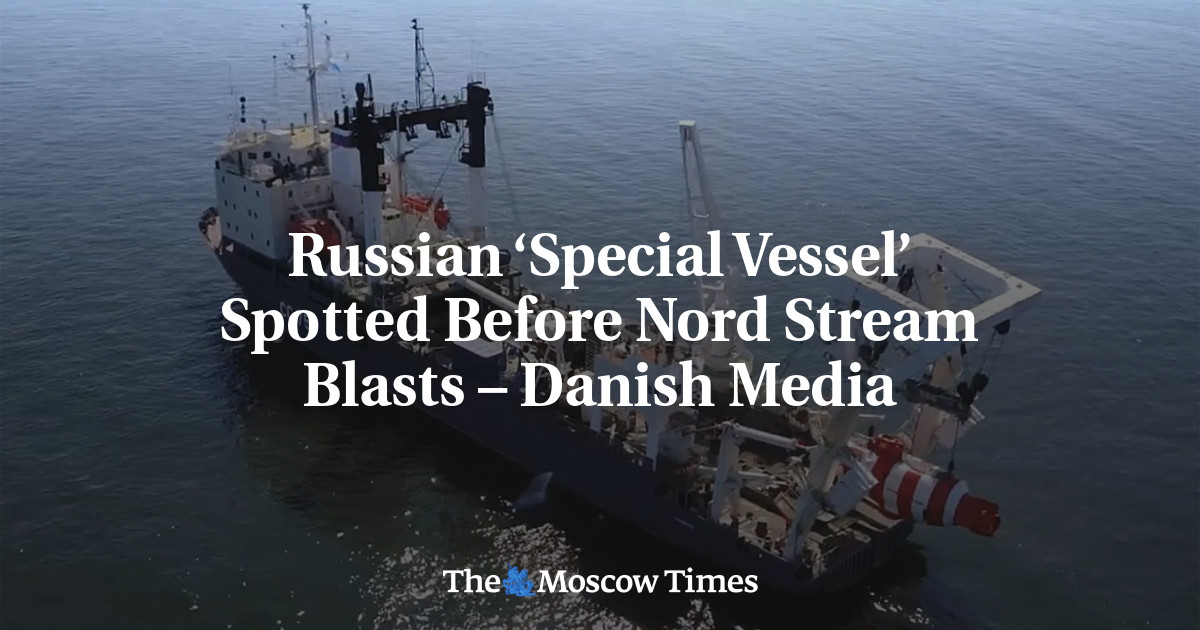
A Russian special vessel had been spotted near the Nord Stream gas pipeline in the Baltic Sea four days before it was sabotaged, Danish media reported, citing a document access request.
The pipelines were ruptured by subsea explosives on Sept. 26, seven months after Russian forces invaded Ukraine.
A Danish patrol boat had taken 26 images of Russia’s SS-750 special vessel with an AS-26 Priz mini-submarine on board on Sept. 22 near Bornholm where the explosions took place later, Denmark’s Dagbladet Information newspaper said.
The outlet said Denmark’s defense command refused to provide access to images of the Russian special vessel designed for underwater operations due to ongoing intelligence work.
“The SS-750 is the most interesting vessel to confirm, because we know that it has the capacity to carry out such a [sabotage] operation,” said Jacob Kaarsbo, a former 15-year veteran of the Danish defense intelligence service.
Open-source intelligence analyst Oliver Alexander said the SS-750 “could theoretically have been there for other reasons.”
“But the timing of being in that particular place at that particular time is special,” he was quoted as saying.
Citing previous reporting by sources including Alexander and based in part on satellite images, Dagbladet Information said the SS-750 may have been “one of a total of six” Russian naval vessels in the area leading up to the pipeline blast.
Swedish civilian and military intelligence services veteran Joakim von Braun suggested the six vessels were “a group that had been put together for exactly this type of operation.”
Several countries were said at the time to have motives for the Nord Stream pipeline sabotage: Russia, Germany, Ukraine, Poland, Britain and the United States.
German prosecutors said earlier that in January investigators searched a ship suspected of having transported explosives used in the blasts.
The New York Times has reported that U.S. officials had seen new intelligence indicating that a “pro-Ukrainian group” was responsible for the sabotage.
The Ukrainian government denied involvement in the action, while the Kremlin rejected the Times report as a “diversion.”